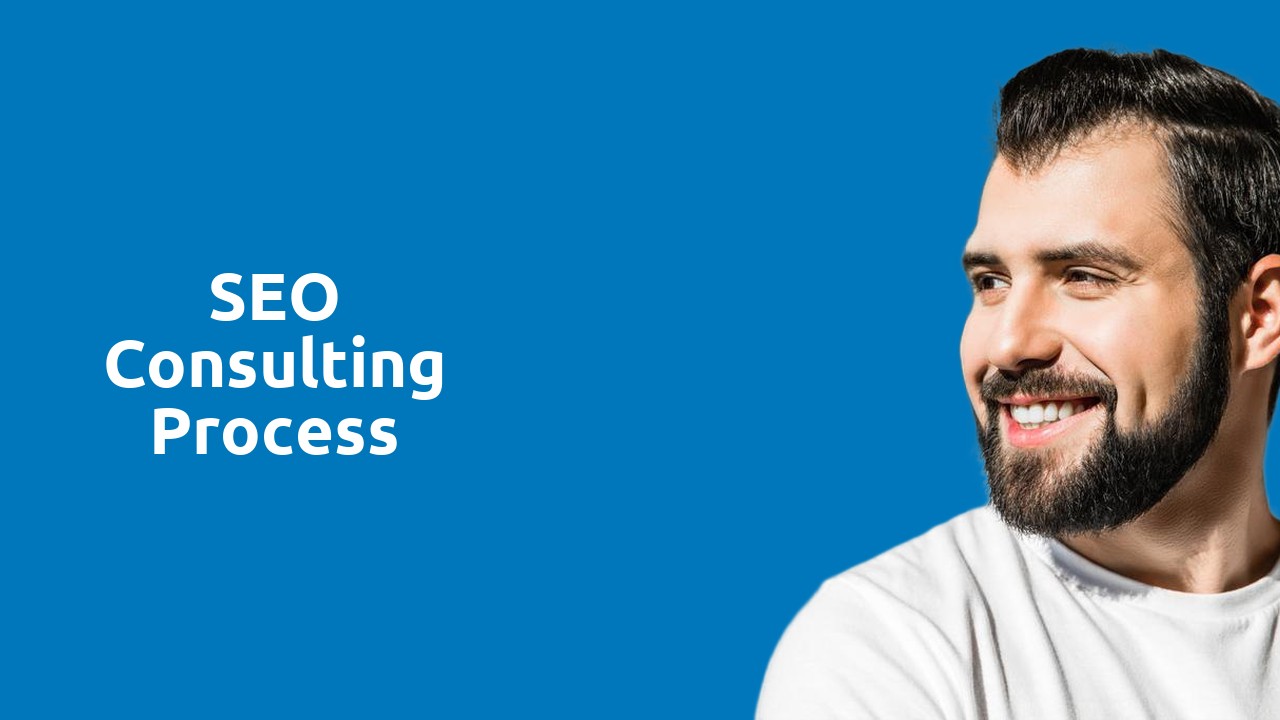SEO Consulting Process

Defining SEO Consulting: Understanding the purpose and scope of SEO consulting services
SEO consulting refers to the practice of providing expert guidance and advice to businesses and individuals seeking to improve their online visibility and organic search rankings. The purpose of SEO consulting services is to help clients optimize their websites and digital content in a way that aligns with search engine algorithms and best practices. By understanding the purpose and scope of SEO consulting, businesses can gain valuable insights on how to optimize their online presence and drive organic traffic.
The scope of SEO consulting services is vast and encompasses various aspects of digital marketing. Consultants typically conduct a thorough analysis of a client's website and current SEO strategy to identify areas for improvement. This initial assessment allows consultants to provide tailored recommendations and strategies that can enhance a website's visibility in search engine results. Furthermore, SEO consultants specialize in keyword research and analysis, helping clients identify the most relevant keywords to target in their content. By optimizing website elements such as meta tags, headings, and internal linking, consultants can improve a website's on-page SEO and increase its chances of appearing higher in search rankings. Additionally, technical SEO is an essential component of SEO consulting, as consultants address any technical issues that may hinder search engine crawling and indexing. Lastly, content optimization plays a pivotal role in SEO consulting, as consultants help clients create high-quality, keyword-rich content that not only engages users but also attracts organic traffic. With the purpose and scope of SEO consulting services in mind, businesses can harness the power of SEO to achieve their online visibility goals.
Initial Assessment: Conducting a thorough analysis of the client's website and current SEO strategy
In order to provide effective SEO consulting services, conducting an initial assessment of the client's website and current SEO strategy is crucial. This assessment serves as the foundation for developing a customized plan that addresses any weaknesses and maximizes existing strengths.
During the assessment, a thorough analysis of the client's website is conducted, taking into consideration factors such as site structure, page load speed, and mobile-friendliness. Additionally, the existing SEO strategy is carefully reviewed, including current keyword optimization, backlink profile, and overall search engine rankings. By examining these aspects, consultants can identify areas for improvement and determine the most effective strategies for boosting visibility and organic traffic.
Keyword Research and Analysis: Identifying relevant keywords and optimizing content for improved search rankings
Identifying relevant keywords and optimizing content are crucial elements of an effective SEO strategy. Keyword research allows SEO consultants to gain insights into the specific words and phrases potential customers are likely to use when searching for products or services. By understanding these keywords, consultants can optimize website content to increase search rankings and attract organic traffic.
In order to identify relevant keywords, SEO consultants utilize various tools and techniques. These can include conducting competitor analysis, analyzing search trends, and utilizing keyword research tools. Once potential keywords have been identified, consultants assess their relevance, search volume, and competition level. This helps to determine which keywords are most valuable for achieving higher search rankings. Once the relevant keywords have been selected, consultants optimize website content, incorporating them naturally into the content, meta tags, headings, and other elements of the website. This ensures that search engines recognize the website as relevant and valuable when users search for those specific keywords. By optimizing content based on well-researched keywords, SEO consultants can greatly improve a website's visibility and drive targeted organic traffic.
On-page Optimization: Implementing techniques to optimize website elements such as meta tags, headings, and internal linking
On-page optimization plays a crucial role in improving a website's search engine rankings and overall visibility. By implementing various techniques, such as optimizing meta tags, headings, and internal linking, website owners can effectively enhance their online presence and attract targeted organic traffic.
Meta tags, including title tags and meta descriptions, provide brief summaries of the webpage content to search engines. By carefully crafting these tags with relevant keywords and compelling descriptions, websites can increase their chances of appearing in relevant search results. Similarly, headings, such as H1 and H2 tags, help search engines understand the content hierarchy and structure of a webpage. By utilizing these tags strategically and incorporating keywords, websites can enhance their visibility and improve their chances of ranking higher in search engines.
Internal linking, on the other hand, involves creating links between various pages within a website. When done correctly, internal linking not only helps search engines navigate and understand the website's content better but also provides a better user experience. By including relevant anchor text and linking to relevant pages, website owners can guide both search engine crawlers and visitors to other valuable sections of their website. This not only improves website navigation but also helps search engines determine the importance and relevance of the linked pages, ultimately contributing to better search rankings.
Content Optimization: Creating high-quality, keyword-rich content that engages users and attracts organic traffic
Creating high-quality, keyword-rich content is an essential aspect of content optimization. This process involves carefully crafting content that is not only informative and engaging for users but also strategically optimized with relevant keywords. By incorporating keywords naturally within the content, it becomes more visible to search engines, leading to higher organic search rankings.
To create content that truly engages users, it is important to understand their needs and interests. Conducting thorough research on your target audience allows you to tailor your content to their preferences, ensuring that it resonates with them. By addressing their pain points, answering their questions, and providing valuable insights, you can establish yourself as a credible and authoritative source in your industry. This, in turn, not only attracts users to your website but also encourages them to stay longer, explore more content, and potentially convert into customers.
Related Links
SEO Consulting ToolsSEO Consulting Cost